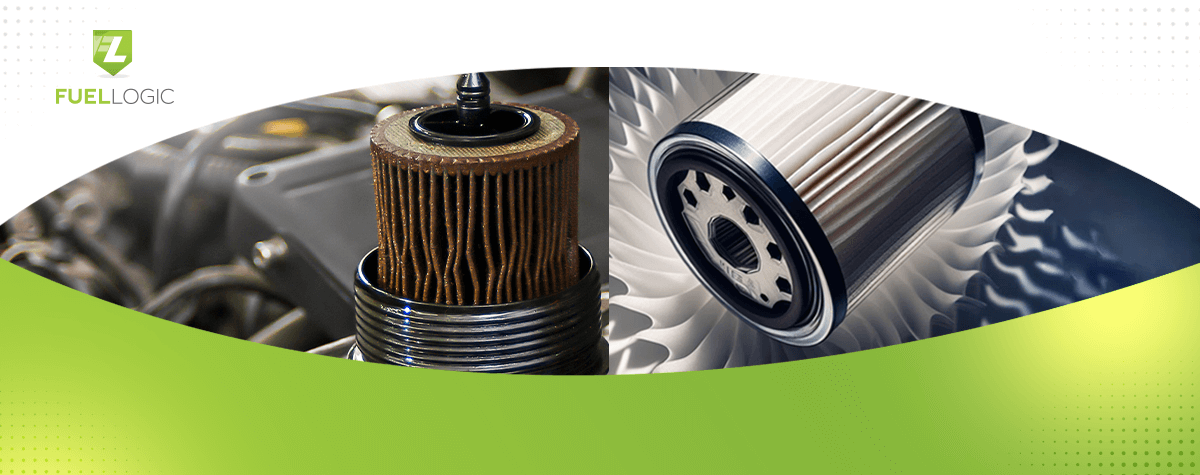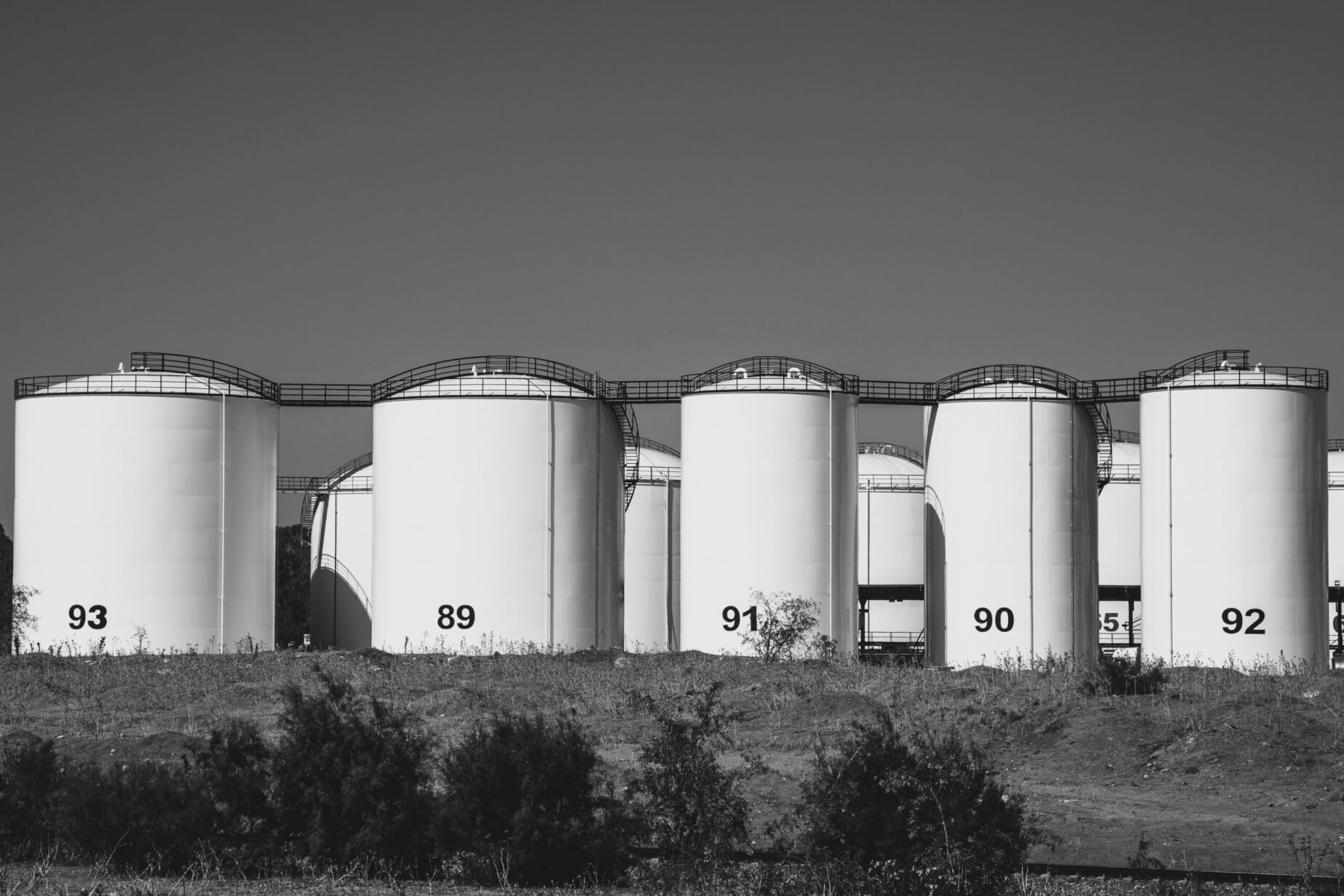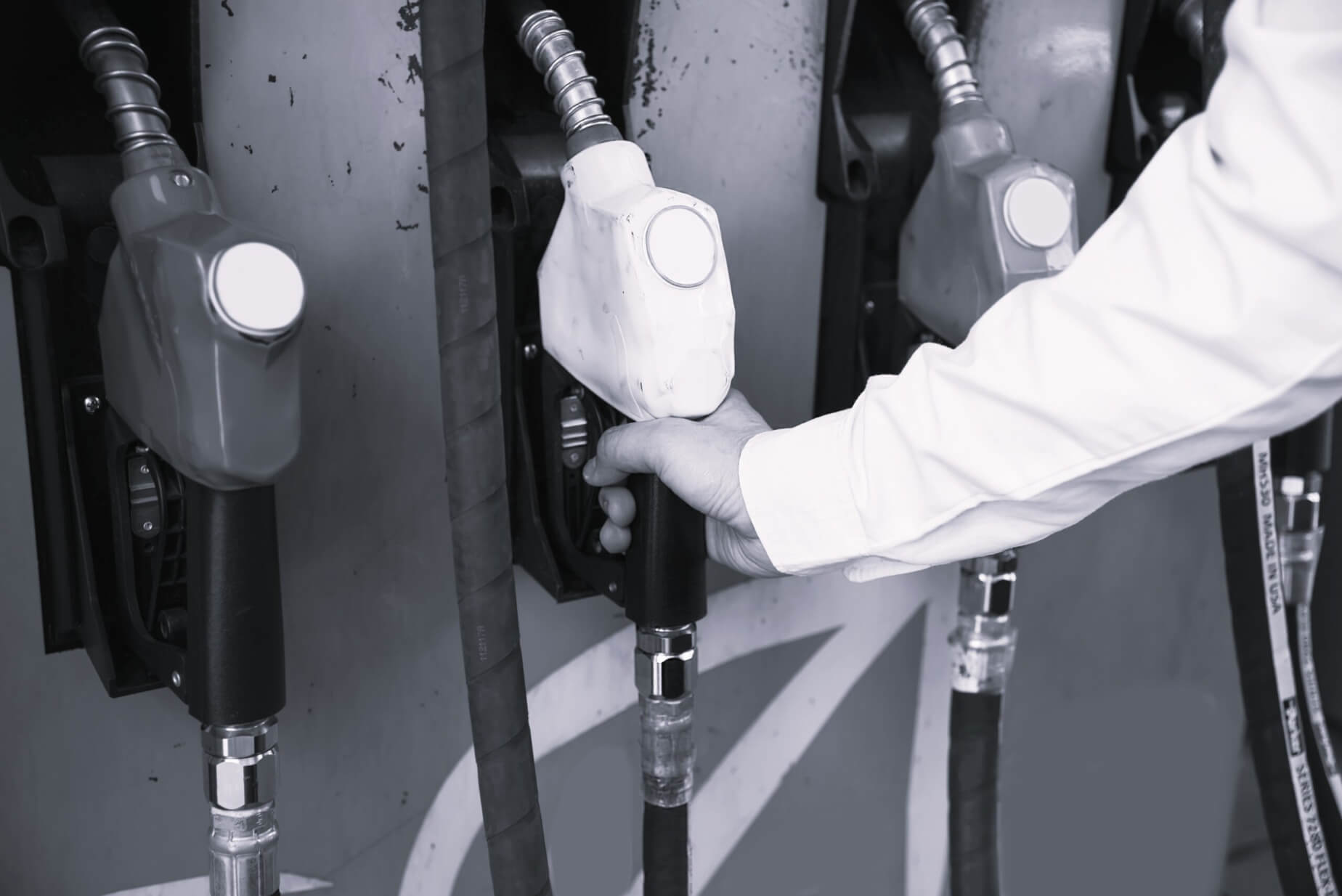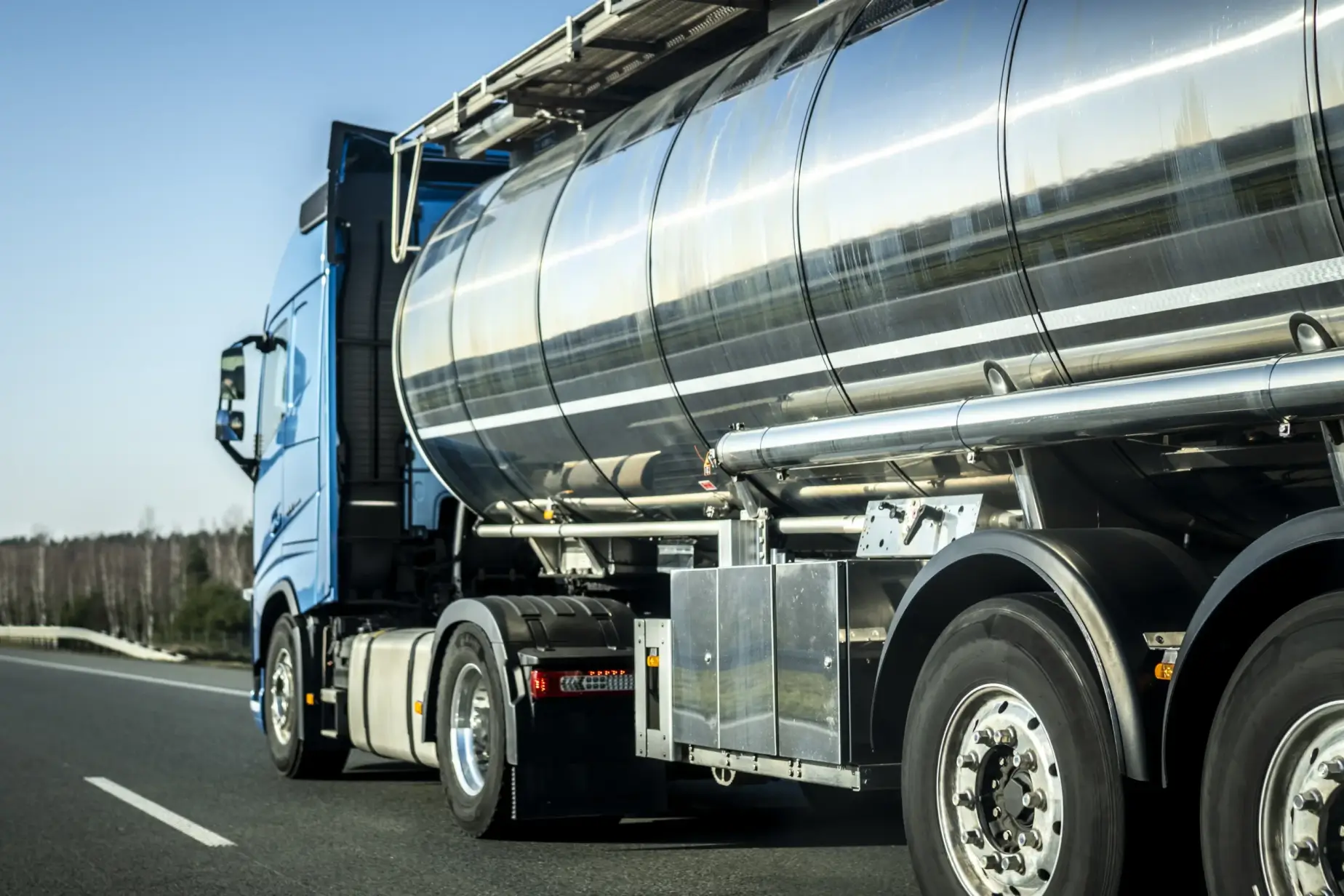How To Clean A Diesel Fuel Filter – Keep Your Vehicle Running Smoothly
When we neglect the cleanliness of the diesel fuel filter, the engine won’t perform well, it’ll guzzle more fuel, and we might end up with severe engine damage. On the flip side, the diesel fuel filter does precisely what it says: it filters out impurities from the diesel fuel, ensuring only clean gasoline enters the engine.
Therefore, a proper route planning for slowing wear down and with a fuel filter cleaning involves regular maintenance. Knowing how to clean a diesel fuel filter can be essential to keep your engine running smoothly. Additionally, diesel-delivery services can make refueling easier, ensuring the engine is never left high and dry.
Now, let us break down each stage of cleaning a diesel fuel filter to ensure the engine remains in a premium condition.
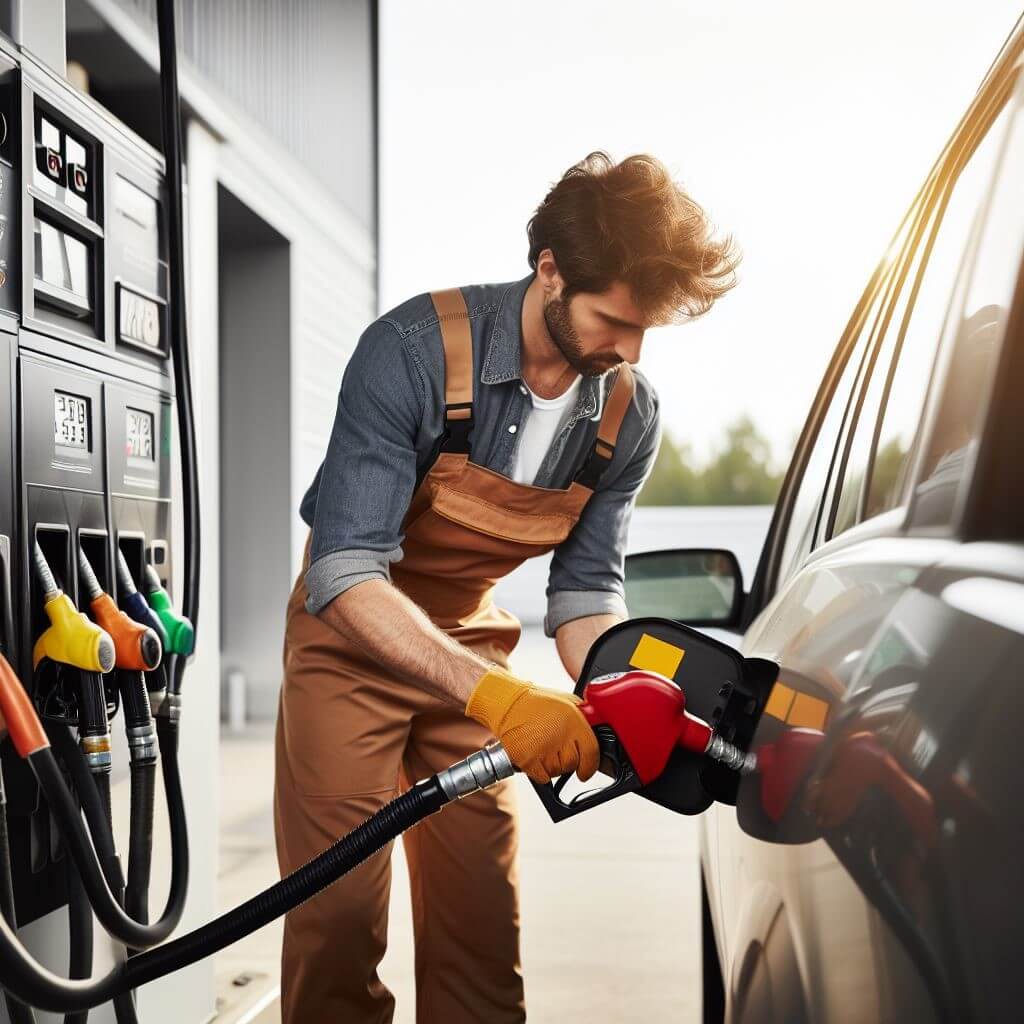
What Is A Diesel Fuel Filter?
A diesel fuel filter is vital to a diesel engine’s fuel system. It removes contaminants and impurities from the fuel, safeguarding the engine’s performance and durability by keeping harmful particles out of the fuel system. Diesel fuel often contains pollutants that, if unfiltered, can clog fuel injectors, harming the fuel’s quality.
These contaminants include:
- Dirt and Debris – Unwanted particles from refueling or present in the tank.
- Water – Moisture in the tank leads to microbial growth, rust, and corrosion, harming the engine
- Microbial Growth – Bacteria and fungi thrive in fuel tanks with a hint of water, creating sludge and clogs.
- Rust and Corrosion – Tank corrosion generates contaminating particles in the fuel.
With its housing and replaceable filter element, the filter captures and holds these contaminants, ensuring clean diesel fuel passes through and shields the fuel injectors.
Diesel fuel filter costs fluctuate based on the vehicle and equipment’s make, model, filter brand, and type. Filter elements usually range from $10 to $30, whereas specialized or high-performance filters may be pricier.
Purpose of A Diesel Fuel Filter
Other than preventing contaminants from damaging critical engine components such as fuel injectors and pumps, the diesel fuel filter has many purposes, such as:
- Protecting Fuel Injection System – Diesel engines nowadays have high-pressure fuel systems with tiny fuel injector openings that need to stay clean. If dirty fuel gets in, it can clog these openings, reducing engine performance and leading to expensive fixes.
- Improving Fuel Efficiency – Clean fuel is essential for efficient combustion in a diesel engine. A clogged or dirty fuel filter can restrict fuel flow, leading to incomplete combustion and reduced fuel efficiency.
- Extending Engine Life – By preventing contaminants from entering the engine, a diesel fuel filter helps extend the life of the engine components and reduces the risk of costly repairs.
- Maintaining Emissions Compliance – Diesel engines must follow emissions rules, and having a fuel filter to keep the gasoline supply clean is crucial to staying within those standards.
- Preventing Water Contamination – Diesel fuel can soak up moisture from the air, resulting in water buildup in the tank. This can lead to rust and nasty stuff growing in the fuel system. A fuel filter with a water separator can stop that from happening.
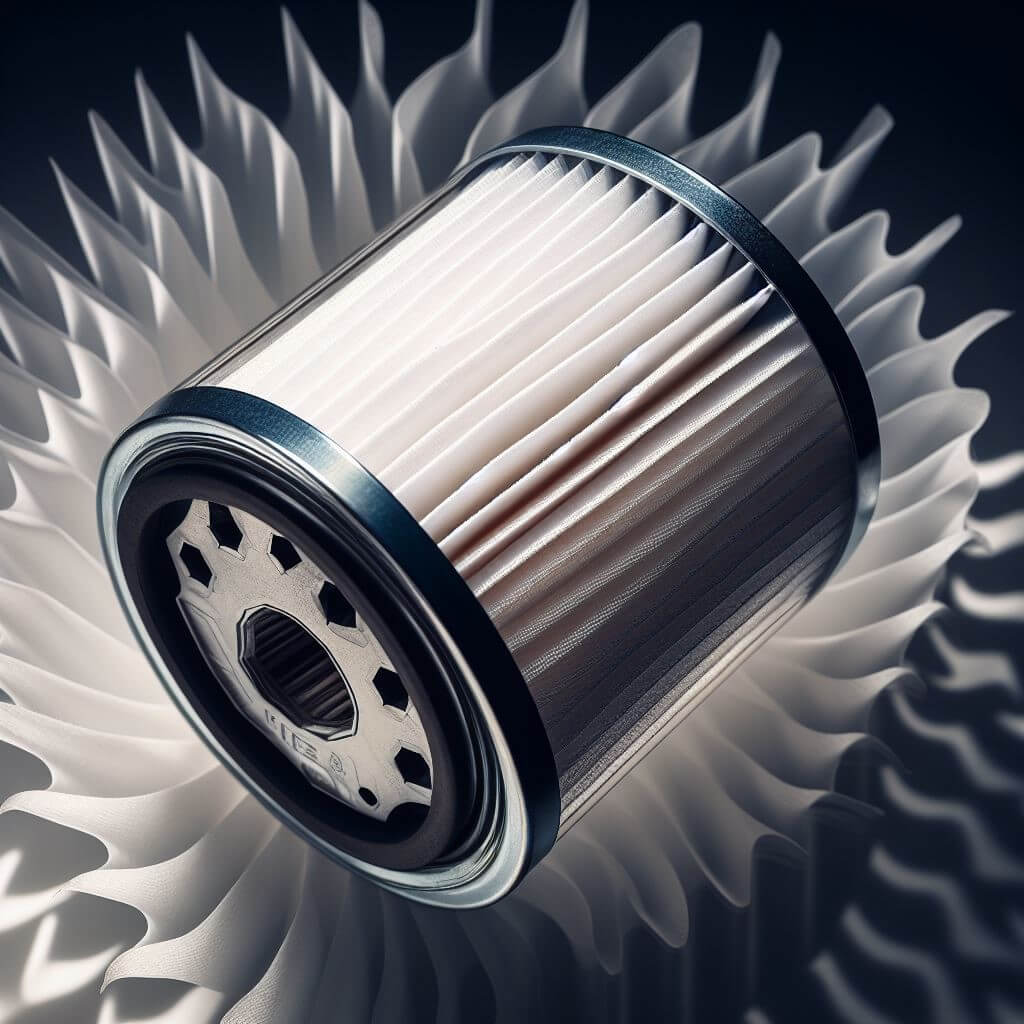
How To Clean A Diesel Fuel Filter
Before learning the proper ways on how to clean diesel fuel filter, wear Personal Protective Equipment (PPE) and have other materials needed for cleaning a diesel fuel filter:
What You Need To Have
Here’s what we’ll need to clean a diesel fuel filter:
- Safety glasses – Keep your eyes safe from splashes and dirt.
- Gloves – Protect the hands from chemicals and stay clean.
- B-12 Chemtool spray (or a similar fuel system cleaner) – This helps clean the filter and eliminate the gunk.
- A jar or container – Use it to collect any extra cleaning solution and debris when you flush out the filter.
Step-By-Step Process On How To Clean A Diesel Fuel Filter
Once we have the required things for cleaning a fuel filter, here are the steps for cleaning it properly:
Ensure Safety in a Well-Ventilated Area
Make safety your top concern. Clean the filter fuel in a well-ventilated area to avoid fumes and breathe fresh air. This reduces the risk of breathing in nasty fumes and makes your workspace safer.
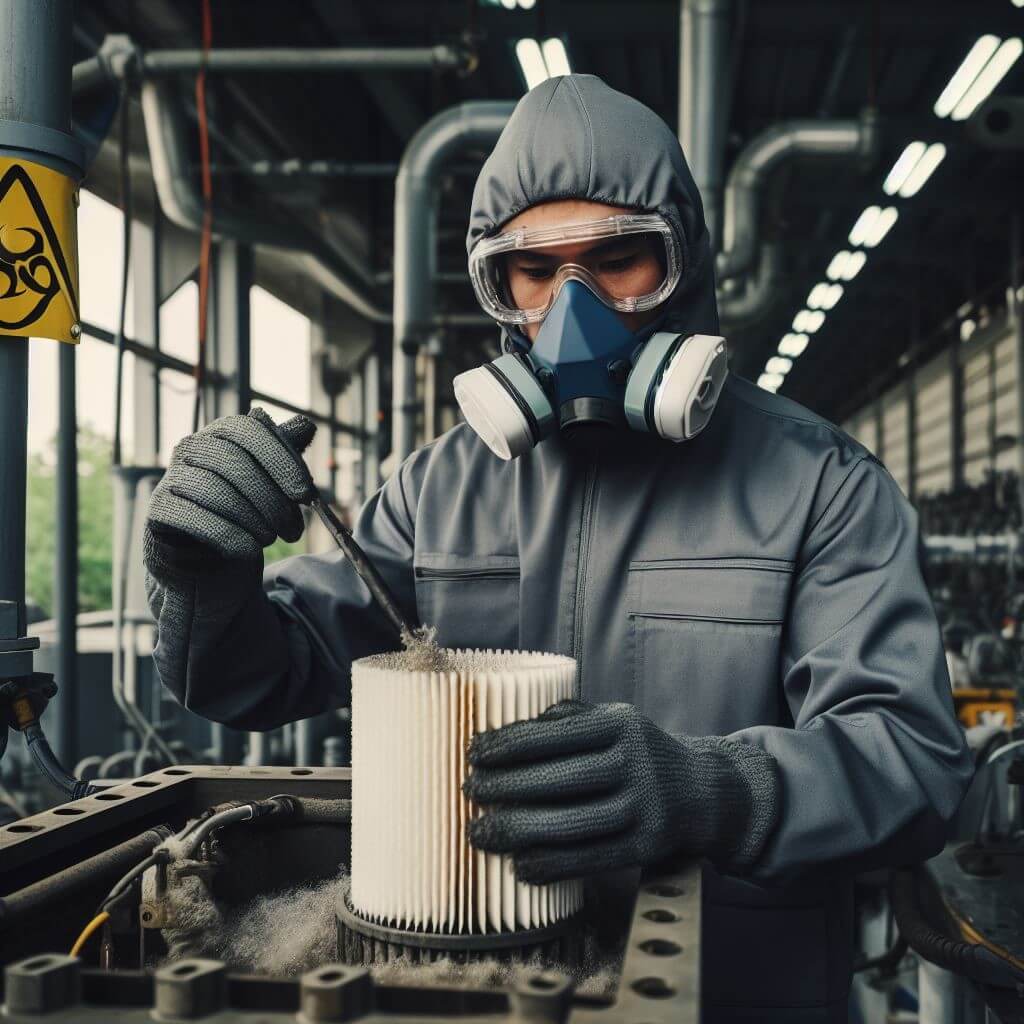
Find the Fuel Filter
Fuel filter spots differ by vehicle or gear. Check your user manual or vehicle info to find it. You’ve got to know where it is before you start.
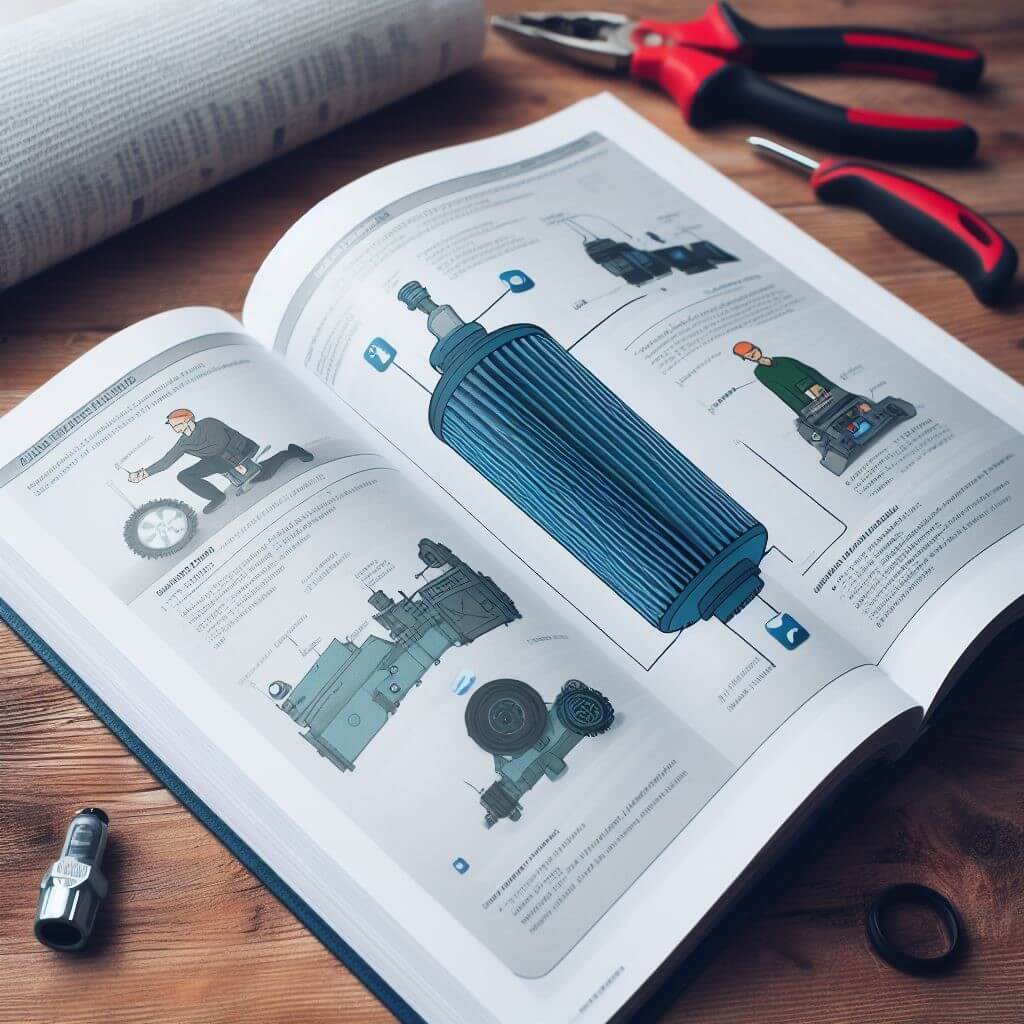
Prevent Fuel Contact with the Spray
Diesel fuel is flammable, so make sure that no fuel is exposed to the cleaning spray or any cleaning process. This prevents any potential fire hazards.

Place a Container Beneath the Filter
Put a container below the fuel filter. It’ll catch any spills, keeping fuel and gunk away from the ground or the engine.
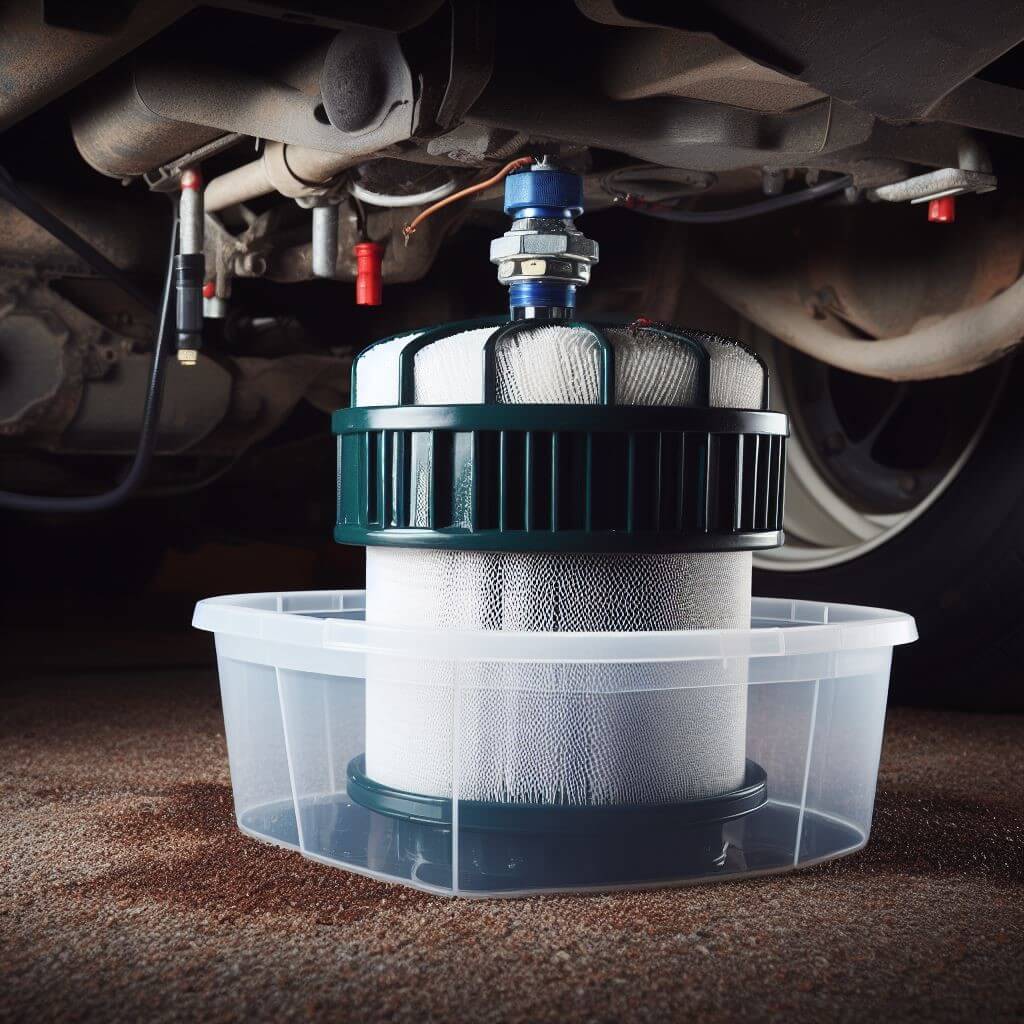
Begin the Fuel Filter Cleaning Process
Begin cleaning by removing the fuel filter from its housing or mounting. Be cautious not to damage any components. Once removed, inspect the filter for visible contaminants.
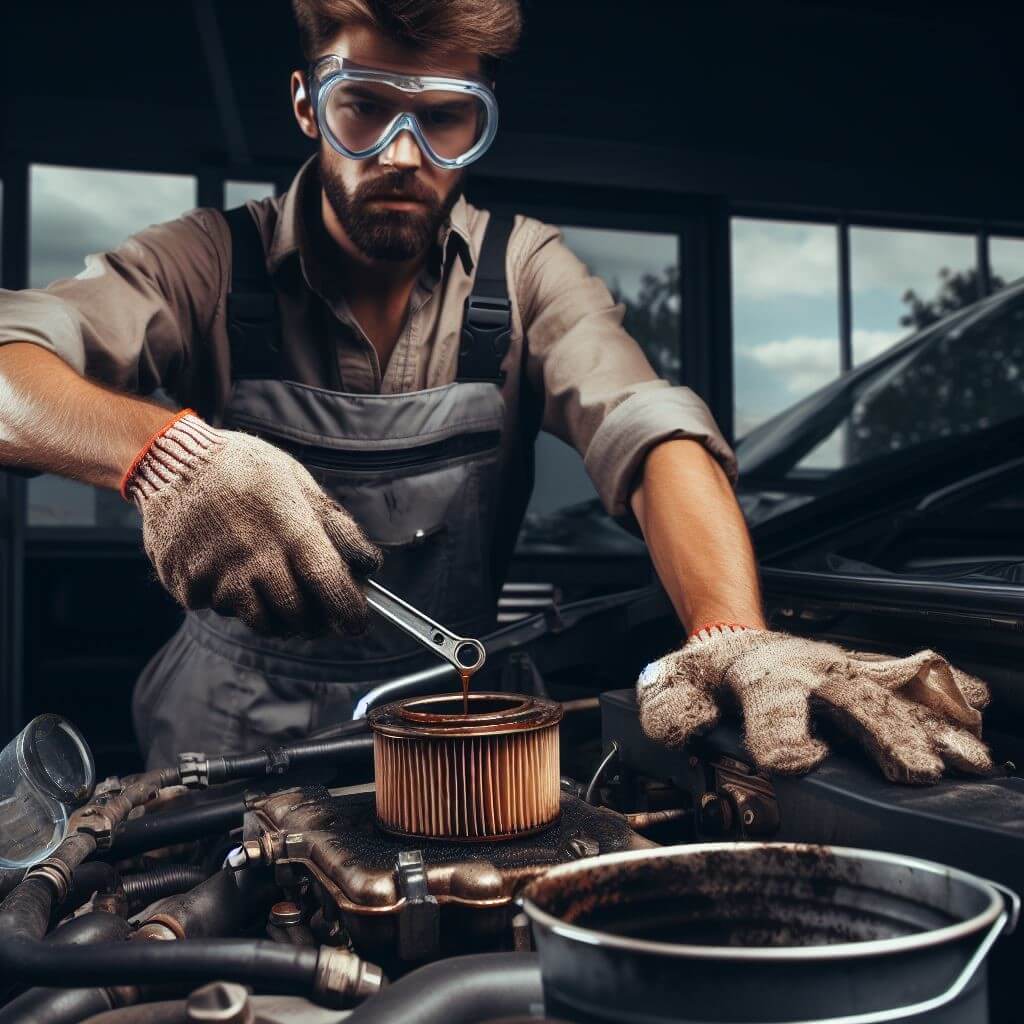
Give the Filter a Gentle Tap
Gently tap the filter to dislodge loose contaminants such as dirt and debris. This step helps prepare the filter for more thorough cleaning.
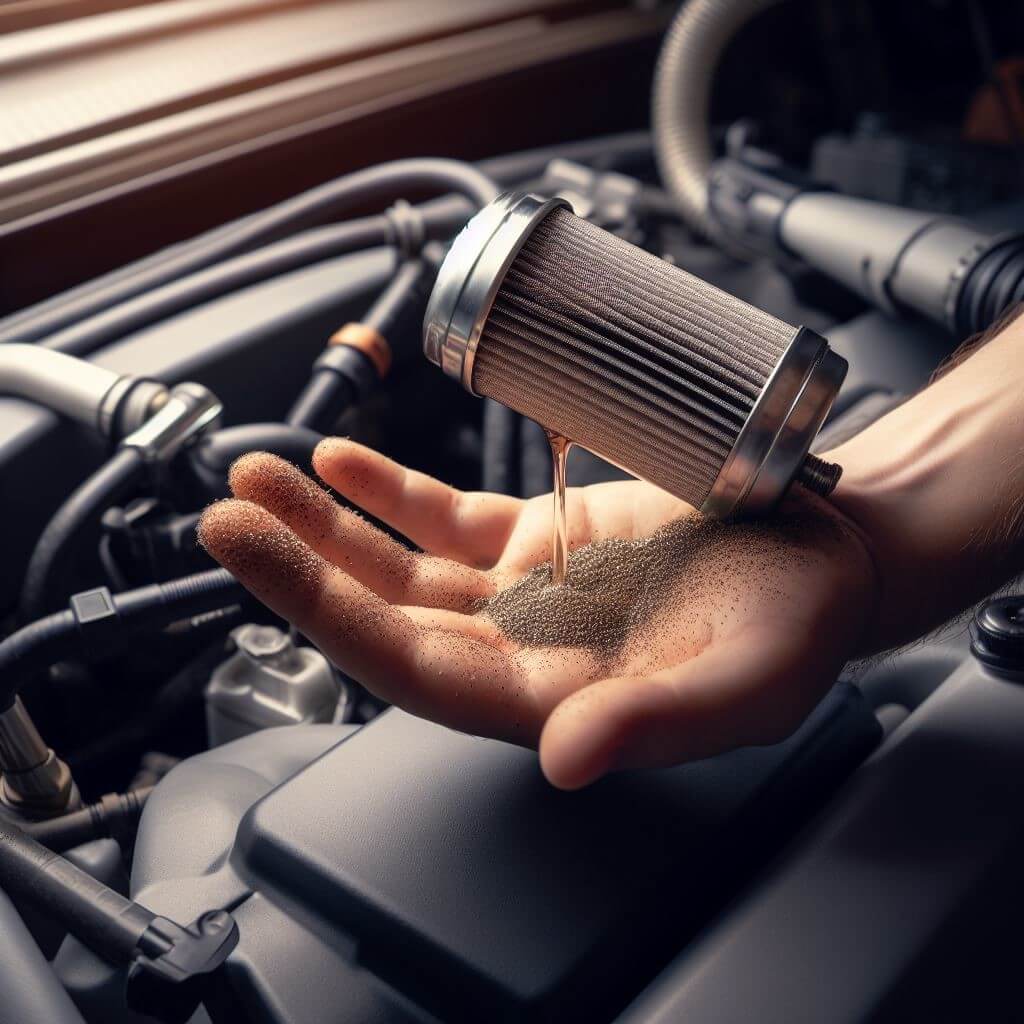
Spritz and Let It Dry
Use B-12 Chemtool spray or a similar fuel system cleaner to spritz the filter. It’ll clean up any leftovers. After that, let the filter air dry completely to ensure no moisture is left.
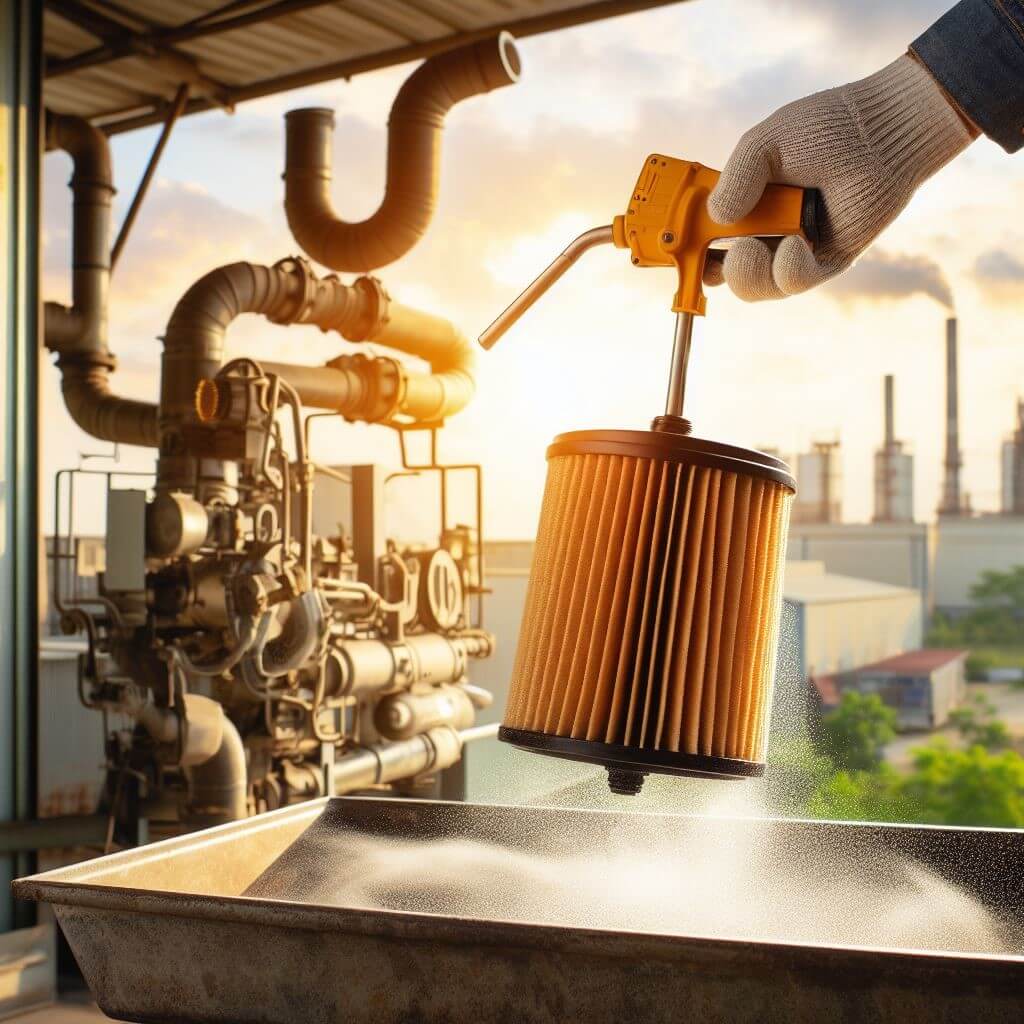
Reinstall the Filter
Once the filter is clean and dry, reinstall it in its housing or mounting, following the user manual. Ensure it is securely and correctly positioned.
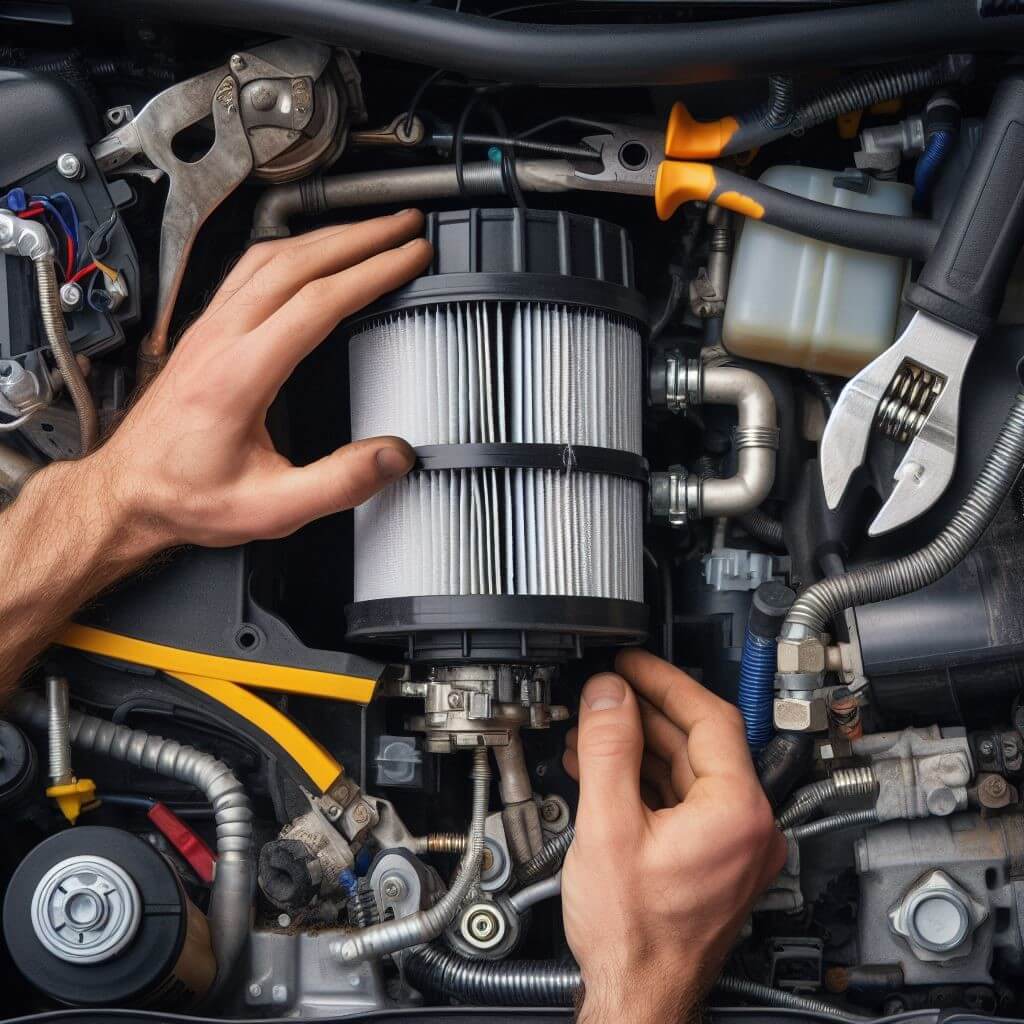
Swap Out the Filter If Necessary
Get a new one if the filter’s damaged, clogged, or showing wear and tear. Stick to the manufacturer’s suggested replacement schedule to keep things running smoothly.
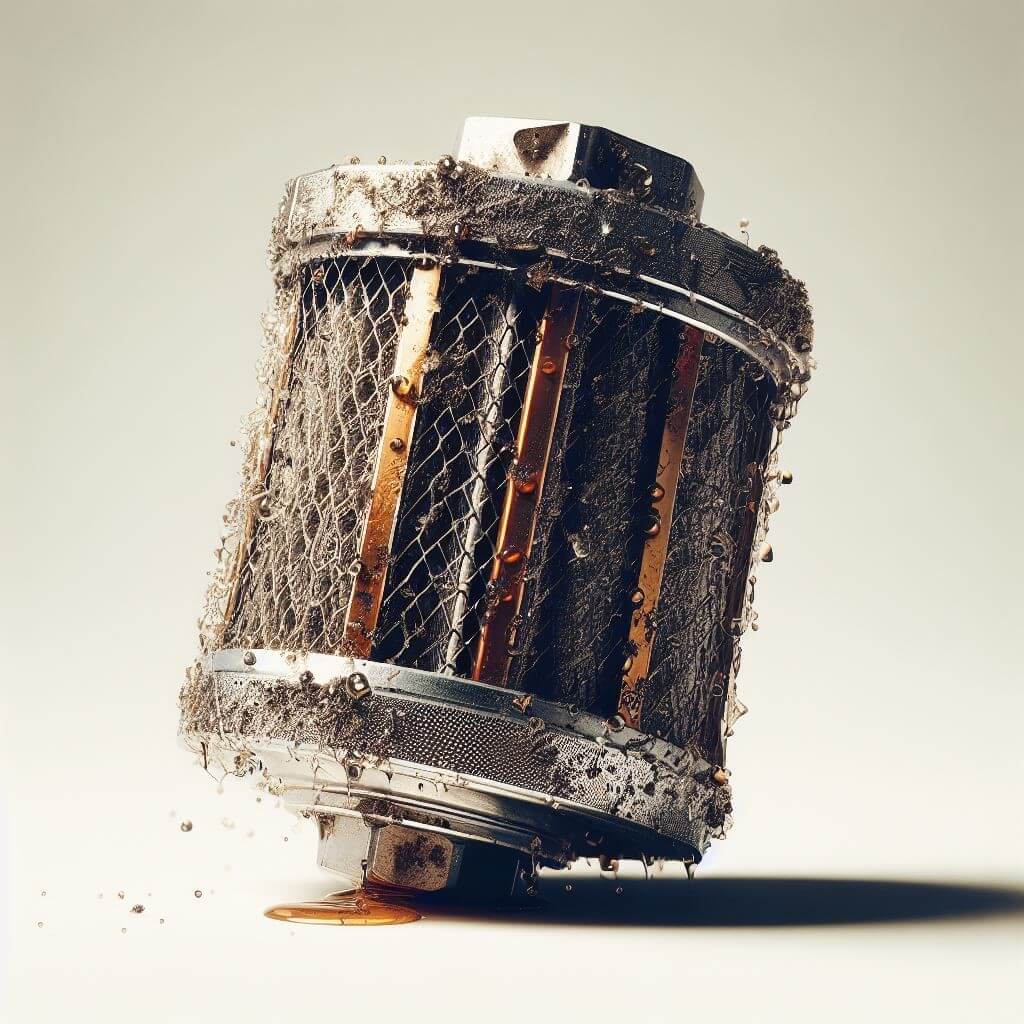
Frequently Asked Questions (FAQs) about Diesel Fuel Filter
How do I know if my diesel fuel filter is bad?
Signs of a fuel filter going bad include trouble starting the engine or speeding it up, engine coughing or shaking. Also, weird smells may come from the vehicle or equipment, or the engine misfires.
What are the symptoms of a dirty diesel fuel filter?
The symptoms of a dirty diesel fuel filter show up as weaker engine performance and sluggish acceleration. Moreover, the engine might be tougher to kickstart, it may hesitate, or strong odors may come out of the vehicle or machinery.
What are the signs of a clogged fuel filter?
When a fuel filter is clogged, the vehicle or equipment may encounter these signs:
- Worse gas mileage.
- Weird engine sounds.
- Engine light warning.
- Tough starts.
- Frequent stalls.
- Sluggish acceleration.
- Gas odor.
What happens when a diesel fuel filter goes bad?
When a diesel fuel filter goes bad:
- Filters and injectors get clogged up.
- Fuel sediments look like coffee grounds.
- The engine loses its usual strength and pep.
- Starting the machine becomes a struggle.
What happens when you don’t change the fuel filter on a diesel?
When the fuel filter on a diesel is not changed when needed, this is what goes down:
- The filter can’t trap all the gunk and contaminants that sneak into the fuel tank during fill-ups.
- The equipment or vehicle’s fuel pump and engine will get clogged with these contaminants.
- A filthy engine will have many problems and might need a full swap if things get really bad.
What can I use to clean my fuel pump filter?
Fuel pump filters are often not designed to be removed and can be cleaned without taking them out.
Just grab a small brush, give it a good dusting, and if there are stubborn bits, use scotch tape to lift them off. Another trick is using a clean paintbrush dipped in fresh gasoline to make the debris cling to the bristles.
How long does it take to clean a diesel filter?
The time it takes to clean a diesel fuel filter depends on the cleaning method used. With a fuel system cleaner, cleaning the filter will take around 15-20 minutes.
How often should I change the fuel filter on diesel?
Most diesel vehicles and equipment makers suggest changing the fuel filter every 10,000 to 15,000 miles or every 100 to 150 hours of use. Keep in mind that these recommendations can vary. However, no matter how often a fuel filter is cleaned, it should be replaced after hitting the 100,000-mile mark.
Need Diesel Fuel For Your Vehicles? Fuel Logic Has Got You Covered!
No matter how great a diesel fuel filter is, it won’t stay clean forever, often collecting dirt, debris, moisture, and contaminants. To extend its lifespan, regular inspections and cleaning are critical for your engine to run smoothly.
Moreover, if you don’t want to wait at fuel stations and need a hassle-free diesel delivery service anytime, anywhere, contact Fuel Logic for mobile fleet fueling service.
We also offer Gasoline deliveries for fleet, Off-Road Diesel and Diesel Exhaust Fluid deliveries for various industries.
Our company ensures quick, reliable fuel delivery for bulk tanks, generators, and more across 48 service locations in the US.
Reach out via our Contact Us Page or use our Online Order Form. Fuel On-Demand – Order Now!

